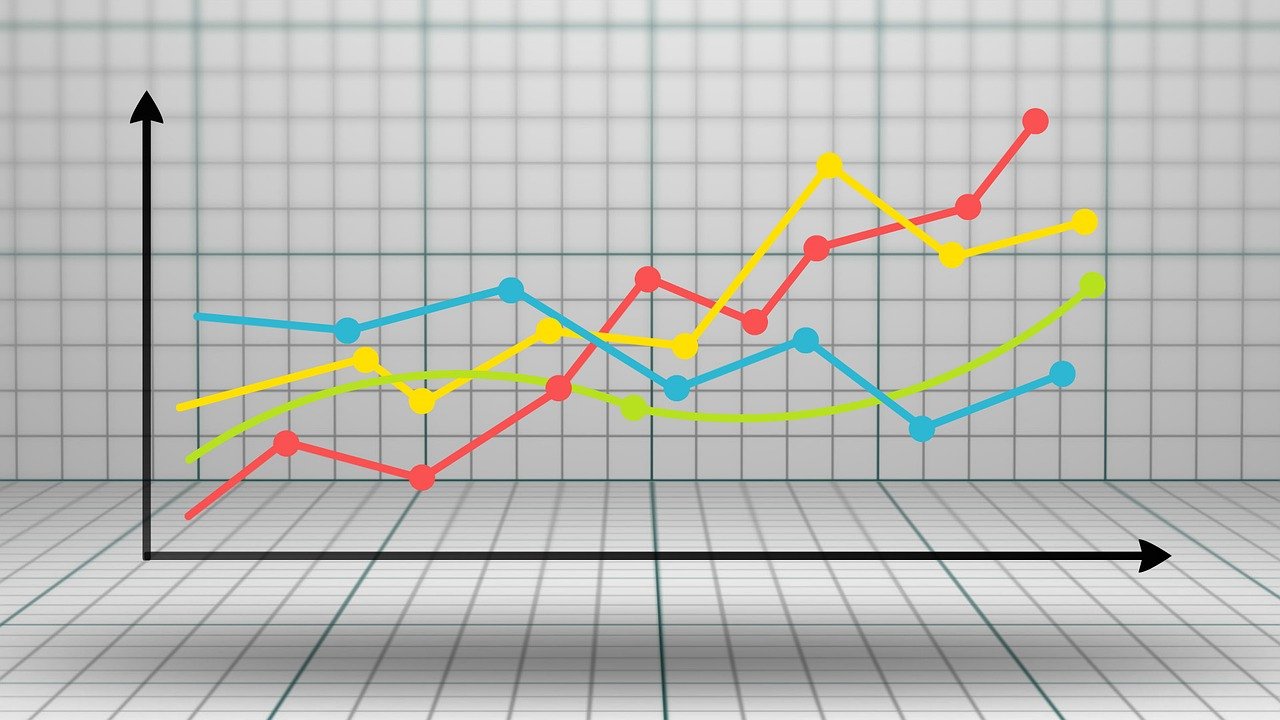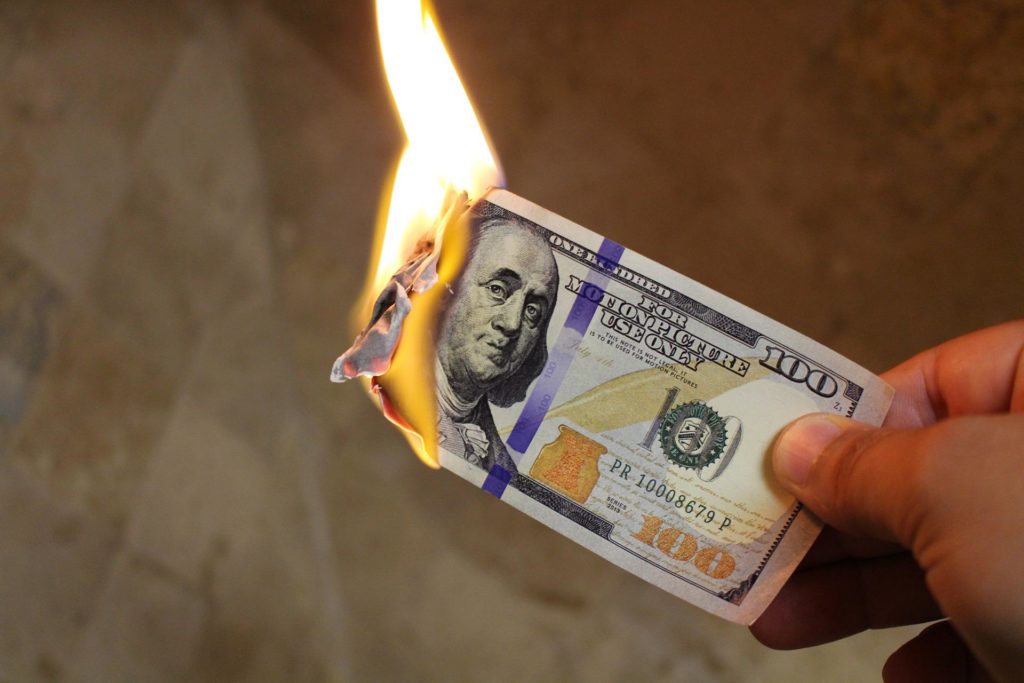Disclosure: We recommend the best company through our review process. We may receive a compensation from some or all of the companies featured in this article.
The current economic situation has a lot of people worried about inflation. In times of economic uncertainty, many people turn to gold as a way to hedge against inflation and protect their wealth. But how does inflation affect the gold price, and is now a good time to invest in gold? It is crucial to take a close look at the relationship between inflation and the gold price and why gold can be a good investment during times of inflation to make an informed decision about whether or not to invest in gold.
What Caused The Current Inflation?
The current inflation is caused by a variety of factors, including the coronavirus pandemic and the resulting economic slowdown. With businesses shutting down and people losing their jobs, there has been a decrease in demand for goods and services. Here are a few examples of current inflationary pressures:
Enter your text here...

1. Coronavirus pandemic and the resulting economic slowdown
The current inflation is caused by the outbreak of the coronavirus pandemic, which has resulted in a significant economic slowdown. The decrease in output and productivity has led to an increase in the prices of goods and services.
Unsurprisingly, central banks are pumping money into the system to keep the economy afloat. With the increase in natural disasters, there has been an impact on economies and inflation. Natural disasters can disrupt supply chains and lead to shortages of goods.

2. Wars and political unrest
Another major factor that can lead to inflation is wars or political unrest. When a country is involved in a war, there is usually an increase in government spending. This leads to an increase in the money supply, which can result in inflation.
Political unrest can also lead to inflation if it results in a change in government spending or taxes. For instance, recent Russia vs. Ukraine conflict led to an increase in the price of oil, which resulted in inflation in many countries. Oil is a major commodity, and its price increase can significantly impact inflation.

3. Increased interest rates
One of the major factors that have been affecting the inflation rate is the increase in interest rates. As rates go up, the cost of borrowing also increases. As a result, people tend to spend less and save more. This, in turn, leads to a decrease in demand and prices of goods and services.
Most central banks have been raising rates to combat inflation. However, this has led to a rise in the cost of living and has been one of the major factors behind the current inflation. With the increase in rates, people are finding it difficult to keep up with their monthly expenses, which puts a lot of pressure on them.

4. Increases in the cost of raw materials
Another major factor contributing to inflation is the increased cost of raw materials. The prices of commodities like oil and gas have been on the rise in recent months, which has led to an increase in the cost of production for companies. As a result, they have been passing on the higher costs to consumers in the form of higher prices.

5. Currency devaluation
Currency devaluation is another major factor that can lead to inflation. When a country's currency devalues, the prices of imported goods increase. This is because it takes more of the country's currency to buy the same amount of foreign currency. As a result, the prices of imported goods go up, and so does inflation.
Historical Relationship between the Gold Price and Inflation
Gold is often seen as a safe haven commodity and is used as a hedge against inflation. The historical relationship between gold and inflation has been positive, with gold prices rising in times of high inflation. This means that gold tends to maintain or increase in value when inflation rises. This is because gold is a scarce resource, and as inflation increases, the prices of other assets such as stocks and bonds tend to decrease in value.
For example, during the 1970s, there was a period of high inflation due to increased oil prices. As a result, the price of gold rose significantly. In fact, from 1971 to 1980, the price of gold went up by more than 1000%. This was a period of high inflation, and gold performed well as an inflation hedge.
Gold has also outperformed other assets such as stocks and bonds in times of high inflation. For the past 40 years, there have been periods of high inflation, and during those times, gold has outperformed stocks and bonds. Stocks and bonds may offer some protection against inflation, but they are not as effective as gold.
As the cost of consumer goods becomes more expensive with inflation, people's disposable incomes decrease in value, and dollar-denominated assets such as gold become more expensive for foreign investors to purchase. This results in an increase in demand for gold, and as demand increases, so does the price.
Over some years, Investors typically seek to protect themselves from inflation by investing in assets with a higher rate of return than the inflation rate. Since gold is denominated in USD, when inflation rises, so does the real return on gold investments. In other words, investors receive an appreciation in the gold price and benefit from the inflation premium.
Central banks hold gold as a reserve asset, and changes in their gold holdings can significantly impact prices. This is particularly true for the United States, which has the world's largest central bank gold reserves. Global economic conditions also play a role in gold prices. When the global economy is doing well, investors tend to buy riskier assets like stocks and commodities, and gold prices usually fall. However, investors flock to safe-haven assets like gold when the global economy is weak, driving prices higher.
Therefore, gold is a volatile asset, and its price can go up or down depending on various factors. However, over the long run, it has tended to maintain its value or increase in value when inflation rises. The worth dollar in the future is always uncertain, which makes gold a good investment during periods of high inflation.

Why Invest in Gold in a Time of Inflation?
Although gold is a volatile asset, it has several properties that make it an attractive investment during periods of high inflation. First, gold is a good hedging tool against inflation because it tends to rise in price when the cost of living goes up. This means that gold can help offset the negative effects of inflation on your portfolio. You can invest in gold through Exchange-Traded Funds (ETFs), mutual funds, or buy physical gold to add to your investment portfolio.
Second, gold is a scarce resource, so it is not subject to the same economic forces as other assets. This makes gold a good long-term investment since it is not as likely to be impacted by economic cycles. As a result, gold can help preserve your wealth over time. The inflation-adjusted price of gold is currently at an all-time high, which makes now a good time to invest in gold.
Third, gold is a haven asset, which means it tends to do well during periods of economic uncertainty. When there is uncertainty in the economy, investors tend to flock to gold as a safe-haven asset. This demand for gold drives up the price of gold, which leads to higher inflation. As inflation goes up, you need more and more money to buy the same amount of gold.
Fourth, gold is a store of value. This means that it retains its value over time. Inflation erodes the value of paper money, but it does not have the same effect on gold. This is because gold is a rare commodity, and its supply cannot be increased as easily as the supply of paper money. This makes gold a good investment for people who are worried about inflation.
With all these reasons, gold is a good investment during periods of high inflation. You can keep your money in gold without worrying about its purchasing power being eroded by inflation.
Conclusion
To sum it up, the current inflation inflationary environment has made gold a much more attractive investment than it was in the past. The higher the inflation rate, the higher the price of gold will go. As the relationship between Gold and Inflation has been proven to be directly proportional, gold can be viewed as a good investment during inflation. With years of data to support this claim, it is safe to say that gold is effective in hedging against inflation.
While the stock market is prone to crashes during periods of high inflation, gold has always held its value and even increased in value during these times. Gold is a tangible asset that cannot be printed or created out of thin air like money, so it is a finite resource. This makes gold a valuable commodity not subject to the same inflationary pressures as other assets. With investors looking for ways to protect their wealth from inflation, gold has always been a go-to investment that has stood the test of time.
If you currently have a 401k account and are interested in investing in gold, you can roll over the fund to Gold IRA without penalty. Check out our article 'Gold IRA rollover guide from 401k'.

